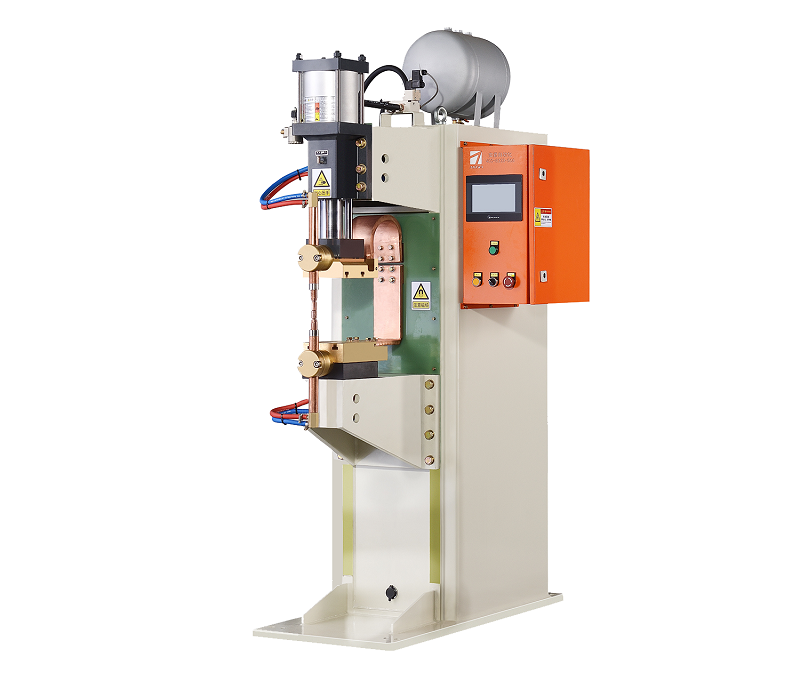Medium frequency spot welding machines are widely used in various industries for their ability to provide precise and efficient welds. Achieving optimal current control precision is crucial for ensuring consistent and high-quality welds. This article explores the factors that can influence the control precision of welding current in medium frequency spot welding machines and their impact on the welding process.

- Power Supply Stability: The stability of the power supply directly affects the welding current’s precision. Fluctuations in the power supply voltage can lead to variations in the welding current, impacting the quality of the weld. Therefore, a stable power supply with minimal voltage fluctuations is essential.
- Electrode Contact Resistance: Proper electrode contact is crucial for accurate current control. Uneven or poor contact between the electrodes and the workpieces can result in increased contact resistance, leading to inaccurate current readings and affecting the welding process.
- Electrode Condition: The condition of the electrodes, including their cleanliness and surface quality, can impact current control precision. Contaminated or worn electrodes may not provide consistent electrical contact, leading to variations in the welding current.
- Workpiece Material Variability: Different workpiece materials exhibit varying electrical conductivities, affecting the welding current required for a successful weld. If workpiece materials deviate from the expected conductivity, the welding current control precision may be compromised.
- Electrode Force and Alignment: The force applied by the electrodes and their alignment with the workpieces influence current distribution. Proper electrode force and alignment help ensure uniform contact and current distribution, contributing to accurate current control.
- Welding Process Parameters: Parameters such as the welding time, electrode force, and electrode geometry play a role in current control precision. Adjusting these parameters based on the workpiece material and thickness is essential for maintaining accurate current control.
- Feedback Systems and Controllers: The quality and accuracy of feedback systems and controllers used in the welding machine significantly impact current control precision. Advanced control algorithms and responsive feedback systems help maintain the desired welding current levels.
- Environmental Factors: Environmental factors, such as temperature and humidity, can influence the electrical characteristics of materials and electrodes, potentially affecting current control accuracy.
Impact of Current Control Precision:
Accurate current control precision directly contributes to weld quality, strength, and appearance. Welds produced with precise current control exhibit consistent fusion and minimized heat-affected zones. Inaccurate current control can lead to defects like under-welding or over-welding, impacting the overall structural integrity of the welded joint.
Achieving optimal current control precision is essential for the success of medium frequency spot welding processes. By understanding and addressing the various factors that influence current control, operators can ensure consistent, high-quality welds across different workpiece materials and thicknesses. Implementing best practices and maintaining equipment integrity will result in reliable and precise current control, contributing to efficient and effective welding operations.
Post time: Aug-15-2023







